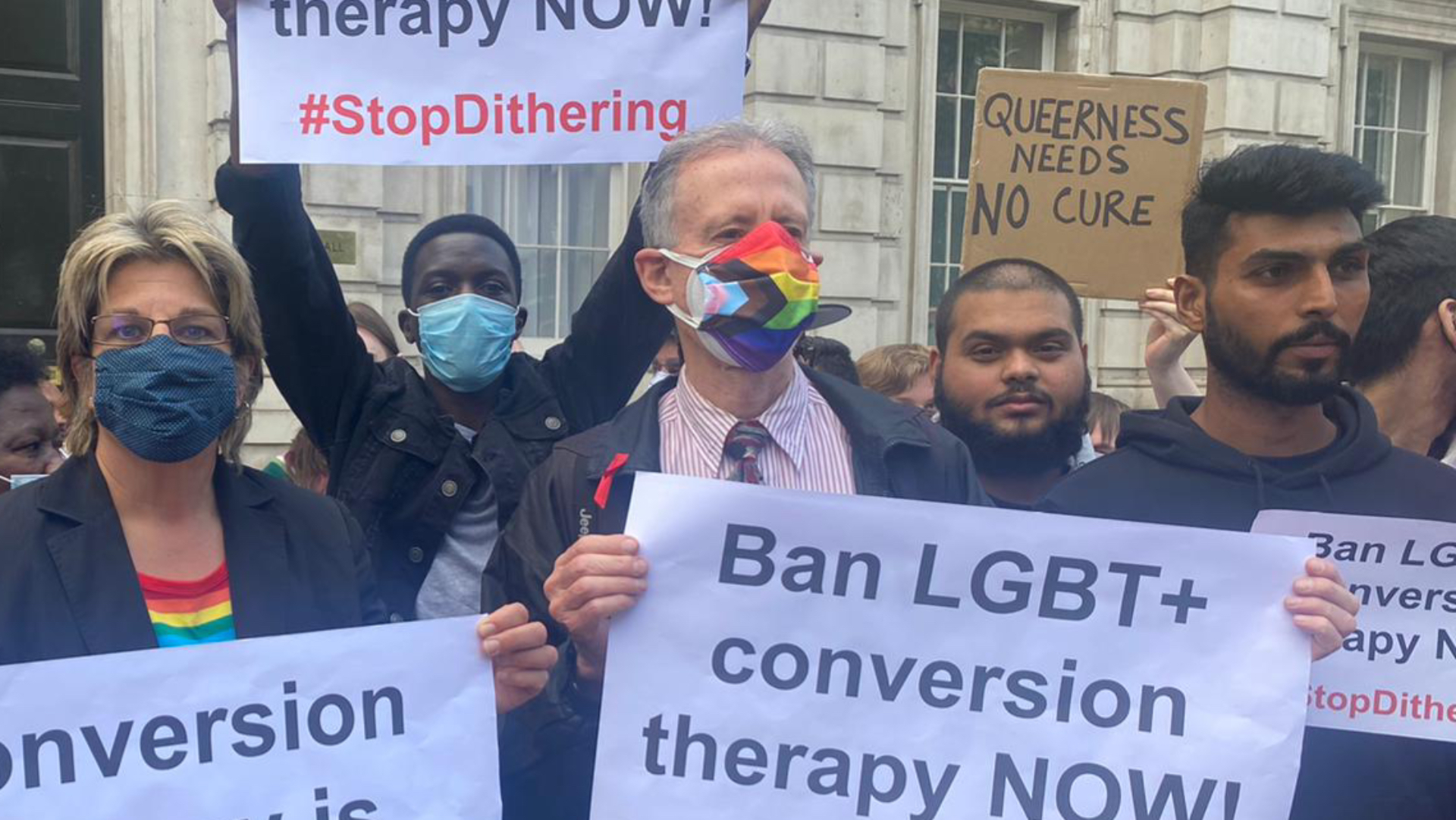‘One year on, and still no ban on LGBTQ+ conversion therapy from Labour’
"No one should be subjected to degrading, humiliating attempts to change who they are," writes Peter Tatchell in an op-ed for Attitude

It has now been a full year since Keir Starmer’s Labour government swept into power on promises of integrity, compassion and change. For the LGBTQ+ community, that promise included finally ending so-called “conversion therapy” – an unethical and abusive practice condemned by every major medical, psychological and counselling body in the UK and worldwide. They say it is damaging and based on the prejudiced assumption that LGBTQs are flawed and broken; that we need to become straight and cisgender.
Despite the evidence showing that conversion practices cause mental and emotional harm, one year on from the last general election, there is still no ban; not even legislation in waiting. No draft bill. Nothing.
Let’s be clear: this is not a new issue. The commitment to outlaw conversion therapy has been promised repeatedly – first by Theresa May in 2018, then by Boris Johnson, and even briefly acknowledged by Rishi Sunak. Kemi Badenoch, when she was equalities minister, wrote to me personally and promised she would ban it. But every Conservative government failed to act, hiding behind “more consultations” and culture war distractions.
Labour, in opposition, rightly criticised this inaction. But in power, its record is no better.
Keir Starmer has now had 12 months to set out his domestic agenda. And yet when it comes to protecting LGBTQ+ people from the mental and physical damage of conversion practices, his government has chosen to do nothing. Inaction is not neutral. It emboldens those who believe LGBTQ+ people, particularly trans individuals, need to be “fixed.”
Labour has been cautious — some might say timid and even retrograde— on issues of sexual orientation and gender identity. But banning conversion practices is not an extreme demand. More than 20 other countries have already outlawed them.
This is about basic human rights and safeguarding vulnerable people. No one should be subjected to degrading, humiliating attempts to change who they are – whether in a therapist’s office, a prayer group, via exorcism or under family pressure.
I will never forget the damage and heartache that conversion therapy caused my gay friend John. Pressured as a teenager by his family and church to change his sexuality, he underwent various degrading and aggressive counselling and prayer sessions. He likened them to a form of “mental torture,” “emotional bullying” and “religious brainwashing.” This led him to believe he was “sick” and “perverted.”
He was told he was a “sinner” and destined to “burn in hell” unless he “repented” and ceased his “Satanic homosexual lifestyle.”
John ended up having a mental breakdown. The sessions did not ‘cure’ his homosexuality and make him straight. But they did make him sexually dysfuncyional and incapable of forming same-sex emotional bonds.
There are people like John still suffering because of Labour’s failure to ban these malevolent practices. This inaction sends a message: that the lives and dignity of LGBTQ+ people are not that important and are still negotiable in British politics. After so much LGBTQ+ progress in recent decades, this is a bitter pill to swallow.
A Labour government that cares about LGBTQ+ well-being and welfare, would have introduced a watertight ban by now – one that protects all LGBTQ+ people, including trans and non-binary individuals, without loopholes for religious or informal settings.
There is still time for this government to do the right thing. But every day it delays, more people suffer. Words are not enough. We need action – and we need it now. #StopDithering.
